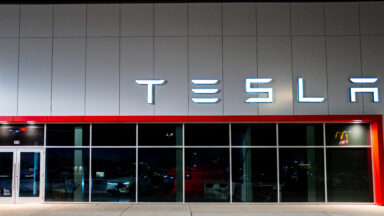
Genetics testing startup Nucleus Genomics criticized for its embryo product: ‘Makes me so nauseous’
Nucleus Genomics, a genetic testing startup founded by Kian Sadeghi at the age of 25, has stirred significant debate since its inception in 2021. Initially aimed at assessing the risk of specific diseases, the company has faced backlash over its products that link genetics to various complex traits, including intelligence. The current controversy escalated dramatically with the recent announcement of its new offering, Nucleus Embryo, which the company promoted via a provocative tweet: "Every parent wants to give their children more than they had. For the first time in human history, Nucleus adds a new tool to that commitment." The Nucleus Embryo product claims to enhance the selection process for in vitro fertilization (IVF) by testing embryos not just for genetic predispositions to serious illnesses like breast cancer, but also for physical traits such as sex, height, hair color, and even IQ. Accompanying promotional material featured a comparison menu, suggesting that parents would have the ability to choose which embryos to implant based on these characteristics. While genetic testing of embryos is a known practice in IVF, typically aimed at identifying serious genetic disorders, Nucleus's approach diverges significantly. The company employs controversial polygenic scores to assess complex traits like intelligence and susceptibility to anxiety. According to the National Human Genome Research Institute, these scores only estimate the likelihood of certain conditions occurring in populations, rather than identifying specific genetic markers. Experts caution that polygenic risk scores are not widely adopted in clinical settings due to a lack of established guidelines and ongoing improvements needed in their generation. Nucleus, however, maintains that its methods can effectively inform individual risk assessments. A spokesperson referred to a 2018 study that purportedly validated methods for assessing risk for several common diseases, yet critics remain skeptical. The unveiling of Nucleus Embryo has sparked outrage and disbelief across social media, amassing over 4 million views on the promotional tweet. Reactions range from astonishment at the implications of 'designer babies' to disgust, with some voices in the venture capital community expressing their discomfort with the concept. This isn't the first time Nucleus has faced scrutiny. Earlier this year, the company attracted attention following its $14 million Series A funding round, backed by prominent investors including Founders Fund and Alexis Ohanian's 776. Critics previously condemned its Nucleus IQ product, which claims to quantify the genetic influence on intelligence, as a blend of questionable science and commercial interest. Despite the controversies, Nucleus continues to assert its role in the evolving landscape of genetic optimization. While currently not conducting the tests directly through IVF partners, the startup collaborates with Genomic Prediction, which works alongside IVF clinics. Parents can choose to upload genetic data to Nucleus to explore these options further. Sadeghi emphasized that societal perceptions of IVF have transformed, suggesting that genetic optimization will similarly become a normalized practice in the future.
Exciting Games Coming to PlayStation Plus This August: Lies of P, DayZ, and More!
Sony has unveiled the lineup for PlayStation Plus subscribers for August 2025, featuring a trio of captivating titles av...
Mint | Aug 01, 2025, 21:00
CRV Secures $750 Million for New Fund Amid Strategic Shift
CRV, a venture capital firm with a rich history spanning 55 years, has successfully raised $750 million for its twentiet...
TechCrunch | Aug 01, 2025, 23:55
Nvidia's H20 Chip Sales Delayed by Commerce Department Backlog
In a significant turn of events, the U.S. Department of Commerce is reportedly causing delays in Nvidia's ability to sel...
TechCrunch | Aug 01, 2025, 20:40
Jury Rules Against Tesla in Landmark Autopilot Fatality Case, Awarding $329 Million
In a significant legal development, a federal jury in Miami has ruled that Tesla bears partial responsibility in a wrong...
Ars Technica | Aug 01, 2025, 19:50
Big Tech's AI Spending Surge: A $344 Billion Gamble
In a striking display of ambition, the world's leading technology firms are set to invest a staggering $344 billion this...
Mint | Aug 02, 2025, 01:05